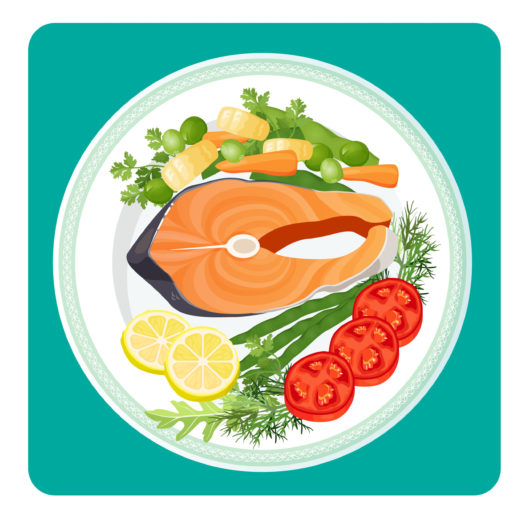Rheumatoid arthritis (RA) is an inflammatory condition, so it makes sense that anti-inflammatory substances would help control it. Although medication that reduces inflammation in the body has proven to be crucial for treating RA, it is unclear whether or not eating an abundance of anti-inflammatory foods makes a significant difference in a patient’s disease activity levels.
Over the years, scientists have tried to determine just how helpful dietary changes may be for people with RA. The findings have been mixed, but they generally suggest that following an anti-inflammatory diet (such as the Mediterranean diet) might be a useful addition to treatment with medication.
Now a new study from Japan has reached a similar conclusion, but with some caveats. It seems that eating more anti-inflammatory foods might help rheumatoid arthritis patients with low disease activity maintain good control over their condition, but it won’t necessarily have an impact for those whose disease activity is already high.
The study, which was published in the journal Arthritis Research & Therapy, evaluated data on 177 RA patients and 183 non-RA patients who filled out dietary questionnaires between 2011 and 2017. Participants were assigned dietary scores based on the amount of pro- or anti-inflammatory foods and nutrients that they consumed.
Common anti-inflammatory foods include fruits, vegetables (particularly leafy greens), and foods high in omega-3 fatty acids, like salmon, olive oil, and nuts. In contrast, foods that cause inflammation tend to be processed or high in saturated fat that comes from animal products, such as red meat and full-fat dairy.
In this study, RA patients’ disease activity was evaluated annually using the DAS28-ESR, which assesses disease activity for rheumatoid arthritis by counting the number of swollen and joints (out of a set number of 28 joints) and measuring levels of inflammation in the blood (erythrocyte sedimentation rate, or ESR).
According to the findings, both the RA patients and non-RA patients were eating more anti-inflammatory foods in 2017 compared to in 2011. (That might simply be a function of caring more about your health as you get older.) The authors noted that previous studies have found that people are more apt to rate their health as poor as they get older and that, perhaps to compensate, “the proportion of people who try to eat a well-balanced diet also increases with age.”
As for how dietary improvements over the years impacted disease activity, it seems that people who already had their rheumatoid arthritis well-controlled were the most apt to benefit. Those who had low disease activity when the study began and ate more anti-inflammatory foods over the years were likely to still have low disease activity in 2017. Those whose disease activity was initially high didn’t reap the same benefits.
This result might indicate that dietary improvements, “may contribute to maintaining disease activity in patients whose base disease activity is relatively well-maintained.”
That doesn’t mean, of course, that people with active rheumatoid arthritis should eat poorly. Anti-inflammatory diets have a variety of health benefits, including reducing your risk of heart disease. (And rheumatoid arthritis can increase your risk for heart disease.) Plus, the authors noted that their research isn’t the final word on this topic. “In fact, a randomized controlled trial (RCT) has been reported that verified that switching dietary content to a pattern that is expected to have anti-inflammatory effects suppressed disease activity after 10 weeks,” they wrote. “Thus, more long-term disease intervention studies are warranted.”
When comparing RA patients to control subjects, the researchers found that RA patients tended to eat more inflammatory foods both in 2011 and 2017 than people without RA. They also found that RA patients who ate more inflammatory foods were more apt to have higher disease activity.
These findings were only associations, so they don’t prove that inflammatory foods cause RA or trigger flares. However, the “diet-associated inflammation may be related to the pathogenesis of RA,” meaning that diet may play some role development or worsening of the condition.
Be a More Proactive Patient with ArthritisPower
Join CreakyJoints’ patient-centered research registry to track your symptoms, disease activity, and medications — and share with your doctor. Learn more and sign up here.
Gioia C, et al. Dietary Habits and Nutrition in Rheumatoid Arthritis: Can Diet Influence Disease Development and Clinical Manifestations? Nutrients. May 18, 2020. doi: https://doi.org/10.3390/nu12051456.
Matsumoto Y, et al. Change in dietary inflammatory index score is associated with control of long-term rheumatoid arthritis disease activity in a Japanese cohort: the TOMORROW study. Arthritis Research & Therapy. April 8, 2021. doi: https://doi.org/10.1186/s13075-021-02478-y






